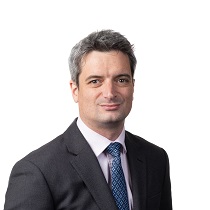-
Cases that involve “serious medical treatment” for a service user who lacks capacity are sensitive matters. Provision (or withdrawal) of treatment requires court authorisation. For healthcare organisations this means receiving the right, informed legal advice is crucial. Our team is on hand, around the clock, to provide urgent legal advice ranging from screening as to whether an application to court is necessary, preparing witnesses and evidence and providing legal representation at any hearings
Your superb and forensic guidance, knowledge and co-ordination…was awesome and from our unanimous point of view, we would not have achieved the outcome without you.
Serious medical treatment can include invasive treatment or the withdrawal of life-sustaining treatment. These decisions, made behalf of persons lacking capacity by healthcare professionals, need court authorisation. Without court involvement the organisation exposes itself to significant risk of criticism, a claim or even criminal prosecution. The treatment is likely to be unlawful.
It can be difficult to ascertain whether a proposed treatment falls under the umbrella of serious medical treatment therefore requiring an application to the court. It is clear that decisions involving potential serious medical treatment should trigger a consideration as to whether, in all the relevant circumstances, that matter should be referred to the court.
The decision whether treatment falls under the umbrella of serious medical treatment is complex. It needs grounding in legal expertise. Our nationally recognised team can provide the support and confidence your organisation needs in the decision-making process.
Our team has extensive experience in field of “serious medical treatment”, having recently acted in cases concerning Obstetric/gynaecological treatment for women with mental health difficulties; Withholding or withdrawing artificial nutrition and hydration from a person in a permanent vegetative state or a minimally conscious state; Organ or bone marrow donation by a person who lacks capacity to consent; Non-therapeutic sterilisation of a person who lacks capacity to consent and Life-saving but invasive surgical treatment.
-
Our team can:
- Rapidly respond to urgent serious medical treatment;
- Screen matters to determine if an application to court is necessary;
- Court applications
- Provide templates and guidance for compelling evidence;
- Support your staff to deliver their evidence confidently and competently;
- Manage the risks to your organisation;
- Effectively represent your organisation with experienced advocates;
- Engage positively with the media.
We have developed tools which can assist with these complex cases, such as the Obstetric Mental Health Toolkit:
In response to the national drive to improve management of perinatal risks, we have developed a practical Obstetric Mental Health Toolkit. It is designed to be used by front-line staff giving concrete advice and guidance on a step-by-step basis. It includes:-
- Flowchart to guide mental health and obstetric teams to plan lawful and compliant care;Article on the court's guidance for these types of cases;
- Knowledge summary of "relevant information" for key obstetric capacity assessments;
- Training session to train your clinical teams on the obligations and requirements of these types of cases.
- E-access to a web-link version of the flowchart (can be accessed on either a desktop or from a mobile/tablet) for flexible, mobile use in clinics/wards.
Our expert team frequently delivers national training on serious medical treatment issues, such as the training concerning Obstetrics and Mental Health and the Court of Protection to the South West Clinical Network – Maternity and the Royal College of Obstetricians and Gynaecologists.
-
A Mental Health Trust, an Acute Trust and a Council v DD and BC [2015] EWCOP 4
This has been described as the most important case in the history of the Court of Protection; involving a decision as to whether a 36 year old woman should be subjected to a caesarean section and then sterilised against her wishes. It raised the possibility of public authorities being accused of social engineering, or reckless neglect if she died because of her refusal to co-operate. The case threw up exceptionally difficult practical and legal issues, including establishing incapacity, ensuring that her voice was heard at court and that the court was able to make a decision with no room for ambivalence. A key part of the management of the case was to secure the continuous co-operation between different statutory agencies while dealing with the tenacious scrutiny from the Official Solicitor acting on behalf of the patient. The court noted the ethical, legal and medical issues arising were self-evidently of the utmost gravity. It concluded that relief sought was “extraordinary” but necessary. We supported all three public authorities throughout these complex proceedings – from initial advice, inputting into professional multi-agency meetings, preparing the application, briefing counsel and producing over 5 lever-arches of persuasive written evidence (enabling the Official Solicitor to change his position, from initial opposition to supporting the proposal as being in her best interests).
NHS Trust v FG [2014] EWCOP 30
In which we acted for one of the NHS Trusts in the case involving precedent setting guidance from the Court of Protection on when obstetric cases should be subject to a Court of Protection application. The Law Society notes: "This judgment is important because Keehan J confirmed that the acid test applies in the acute setting."
Aintree University Hospitals NHS Foundation Trust v James [2013] UKSC 67
We acted, on a pro-bono basis, for the Intensive Care Society, in this leading Supreme Court judgement on withdrawing and withholding life sustaining treatment.
Unreported Judgement – Urological Treatment
This case involved a complex decision about whether a patient with a serious medical condition and a mental disorder should be subjected to treatment against his wishes; for diagnosis, investigation, treatment and management of P's urological, nephrological and prostatic condition. The case required careful, detailed preparation to ensure that the patient's rights were properly respected and the professionalism of the Trust clinicians was appropriately highlighted. Roderic Wood J stated in open Court that the application had been prepared “immaculately” and that he had “never seen an application prepared to this standard”. He continued "P is a very fortunate man indeed. The way this case has been dealt with by the doctors and those representing them, has meant that I haven’t had to go through a lot of the issues and details I ordinarily have to in these cases."
Unreported Judgement – End of Life Care
We acted for this Trust in a complex disputed end of life care case where an elderly patient's daughter refused to accept that her father should have treatment withheld. The clinicians in this case required considerable support and advice to ensure they felt protected in an environment that had the potential to become hostile. We advised on the legality of proposed care plans and management of the patient's relatives' expectations and behaviour, provided guidance in decision-making processes, supported clinicians in the preparation of witness evidence, drafted the application and prepared appropriate documents such as the care plan. We supported witnesses at the hearing and provided dynamic advice in parallel to the patient's condition and other parties' approaches. Ultimately, the decision reached was accepted and implemented but more importantly, the stress of a difficult, emotionally charged hearing did not turn into an inquisition and the Trust staff were able to discharge their duty as part of a public authority acting lawfully and appropriately.
Legal Insights

Bevan Brittan strengthens expertise with specialist planning partner hire in Birmingham
06/06/2025
View all News

Company Secretary Snapshot – June 2025
04/07/2025
Key changes and current affairs for Company Secretaries working in social housing
View all Articles


















